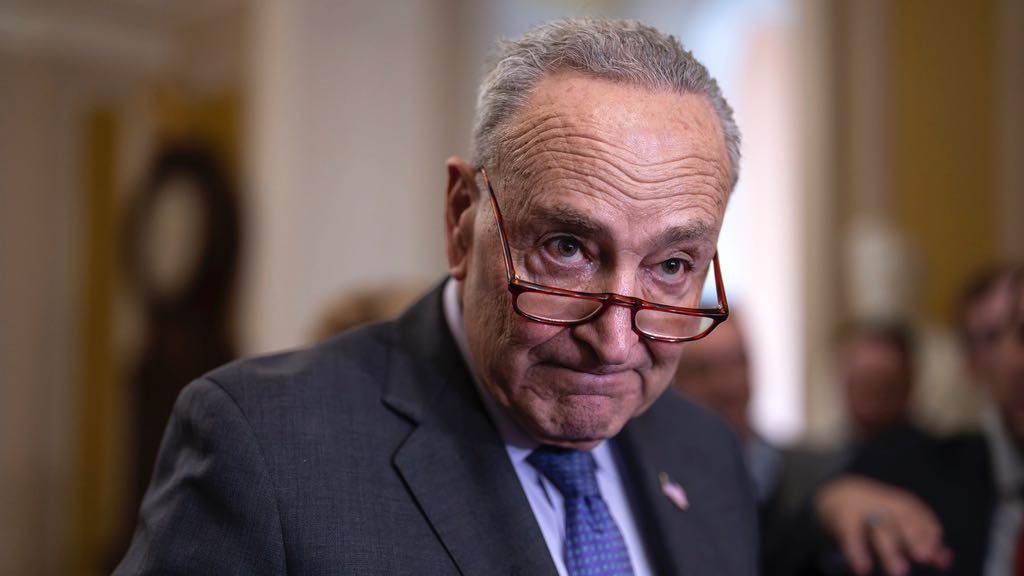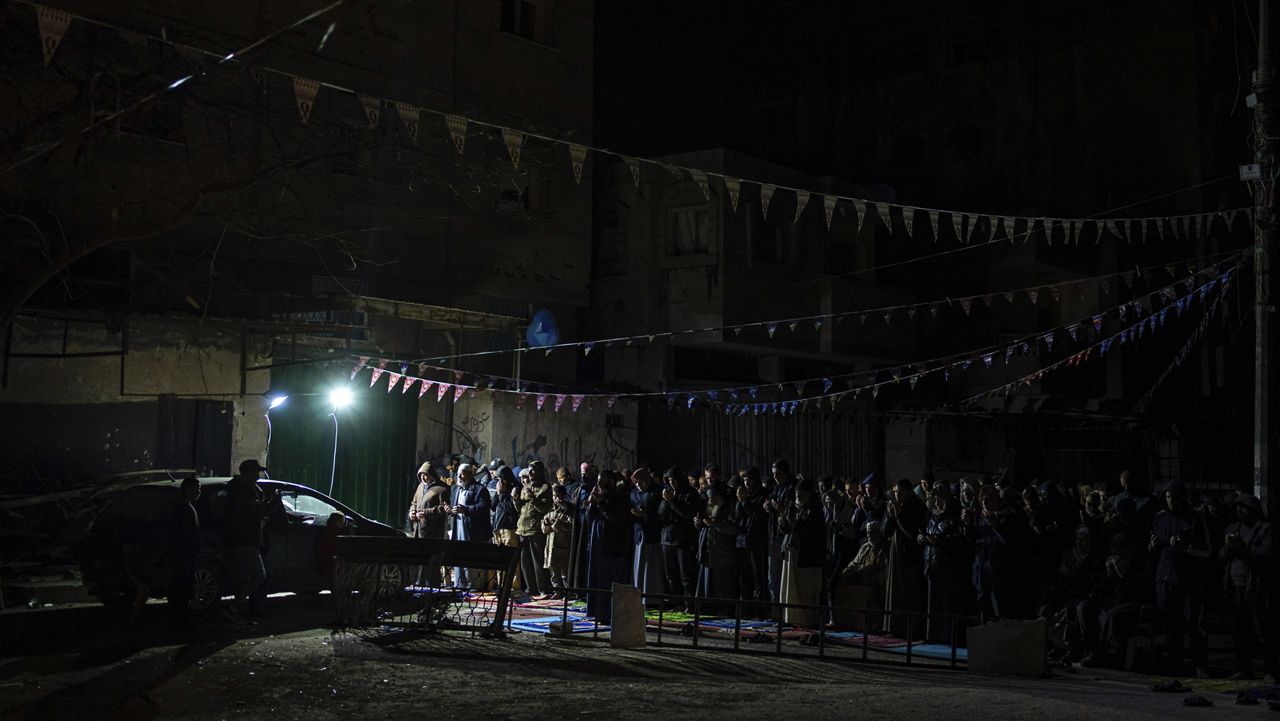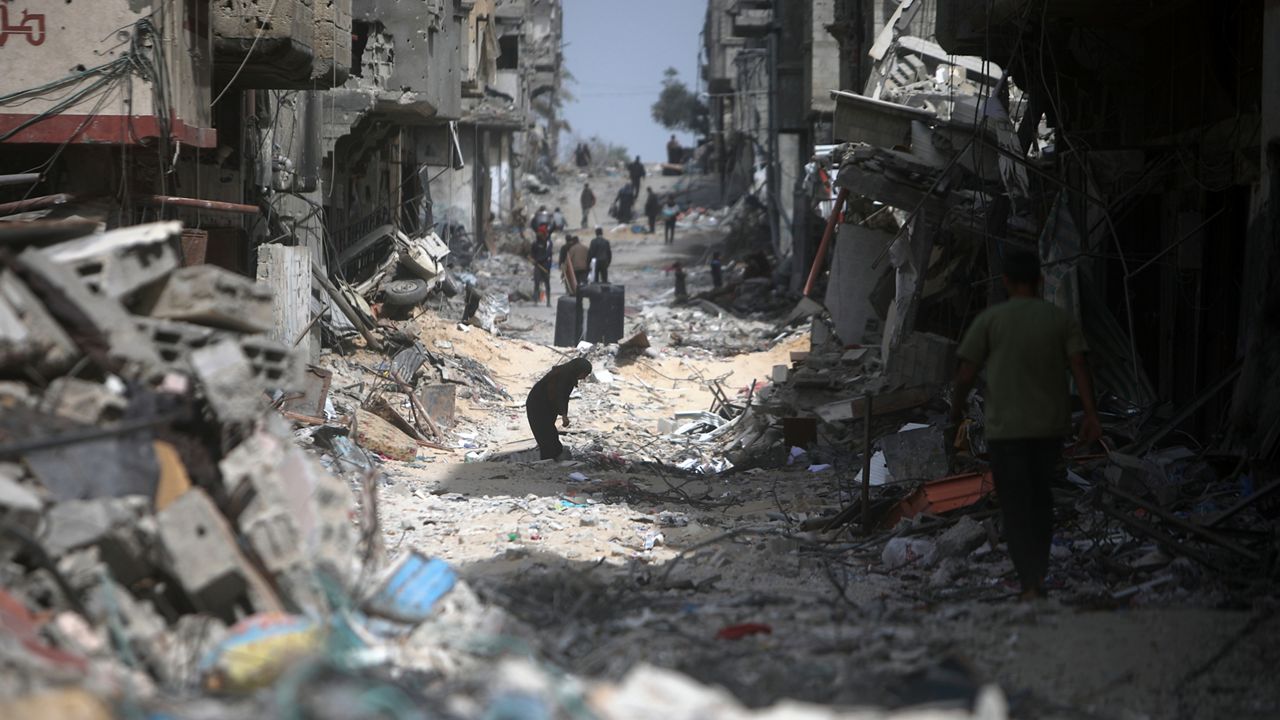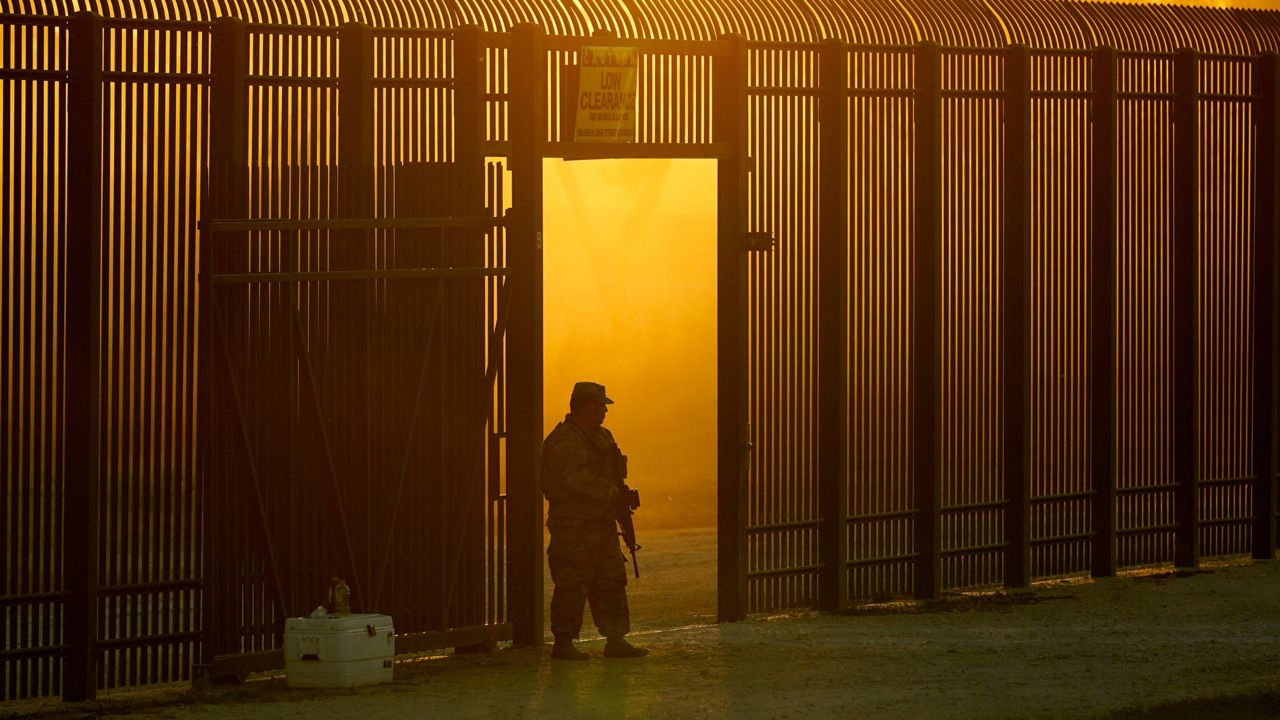Monday marked one year since the Hamas attack on Israel. The callous, coordinated attack pushed the Middle East into full-scale warfare, which hasn't let up to this day.
This is a look at the human cost: More than 1,200 Israelis were killed on Oct. 7, many in horrific fashion. More than 250 others were taken hostage by Hamas, according to the Israeli government. It was the single-deadliest attack on Jews since the Holocaust.
Israel responded with counterattacks and a full-fledged war that's resulted in more than 41,500 people dead in Gaza and more than 96,000 people injured, according to Palestinian health authorities.
There is no question about the brutal reality of this war. But today is about the human toll it has taken, specifically on Jewish communities across the world.
People of Jewish faith are currently observing the high holy days. It's a peak spiritual season when multiple holidays are celebrated over several weeks. The most well known are Rosh Ha Shannah — the Jewish New Year – and Yom Kippur. But the high holidays look different this year as Jews around the world mourn the lives lost on Oct. 7, 2023.
A vigil Sunday honored the Israeli hostages taken and those murdered in the Hamas attack.
Laura Weisblatt is a Jewish community advocate who started one of the organizations that planned the event, “Amidah Albany,” which has a mission to stand up for the Jewish community and fight antisemitism. She started Amidah Albany in the months following Oct. 7.
"Terrorists killed people in their beds as they slept, killed family members in front of other family members," Weisblatt said. "Sexual violence was used as a weapon of war, systematically.”
For context, the Jewish community is small, and Israel is about the size of the state of New Jersey with a population of about 10 million people. Jews, Arabs, Christians and more all live together in the state of Israel but according to the Jewish Virtual Library, over 45% of the world's Jewish population lives there.
So the massacre of one year ago had a tremendous impact on Jews across the world. According to the Pew Research Center, Jews make up only 0.2% of the world’s population, so the ripple effect of Jewish people who either knew someone themselves who was killed, injured or taken hostage that day, or knows someone else who does, is far-reaching.
Weisblatt reflected on that.
"Even though, you know, we're thousands of miles away, our hearts are there and our people are there and our families are there," she said. "And so the terror that they inflicted on, you know, Jewish people, innocent people, we also felt terrorized.”
There was a surge of antisemitism in the months that followed the attack. Three months following Oct. 7, the Anti-Defamation League reported an increase in antisemitic hate crimes of 337% compared to the same period one year prior.
But Weisblatt said the Jewish community deserves a chance to mourn, which she says many have not yet done with the rise in Jewish hate. She also says the Jewish people must stay strong and stay proud of their roots, even in the face of hatred.










